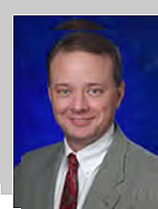VOLUME 26, ISSUE 1
ASA Anesthesiology Policy Research Rotation in Political Affairs

Linda T. Pearson, MD TSA Resident
Anesthesiology residents and fellows are preoccupied with patient care and medical education and frequently are not aware of the micro print “legalese” in legislation passed by Congress that can drastically alter their future. However, this aspect of an Anesthesiology practice is vitally important as we advocate for patient safety and the future of our specialty. The American Society of Anesthesiologists (ASA) has an outstanding team of staff advocates that closely monitor the political climate and help our leaders navigate the often confusing political scene. The ASA has formalized a residency rotation for future leaders in our specialty to gain a better understanding of the political process and how it affects our specialty. This one-month elective rotation is approved for residency credit with the ACGME and the ABA.
In September of 2013, I (LP) had the privilege of serving as a Resident Scholar in Washington, D.C. alongside the ASA policy makers and learning the inner workings of the U.S. Congress and how their actions affect our specialty and the safety of our patients. This experience gave me a new appreciation for the leaders in our specialty who serve as advocates for us and our patients and our specialty on a daily basis. It is surprising how little the general public and politicians know about our specialty. Our advocates work hard to increase the visibility of our specialty and lobby consistently for policies that will assist our specialty in keeping our patients safe.
During my month at the D.C. office I researched the most current issues and laws that the ASA Office of
Governmental and Legal Affairs was laboring on and developed talking points on those topics and how to deliver those points clearly and concisely to Congressmen and their staff. What became abundantly clear is being in the political trenches is the best way to realize how the government operates and to see the dramatic difference we can actually make. It was also clear that involvement in the TSAPAC and ASAPAC is vitally important to being successful in the political process. These committees afford our Staff and Physician advocates the opportunity to get our message of patient safety to our political leaders.

Russell K. McAllister, MD TSA Academics Editor
There are numerous ways for residents to become politically involved such as at the local level, through key contacts with their state legislators, through the TSA’s Day at the Capitol, the ASA’s Grassroots Network, and various other activities in conjunction with the TSA. However, the intense and focused experience of the Anesthesiology Policy Research Rotation in Political Affairs is an opportunity like no other for residents. It provides immersion into the medical and political arena that is difficult to achieve in any other venue. It is my hope that other anesthesiology residents and fellows who are in good standing with their programs will seek out this unique opportunity and that their residency programs will support them in these endeavors.
To apply for this one-month experience, please

